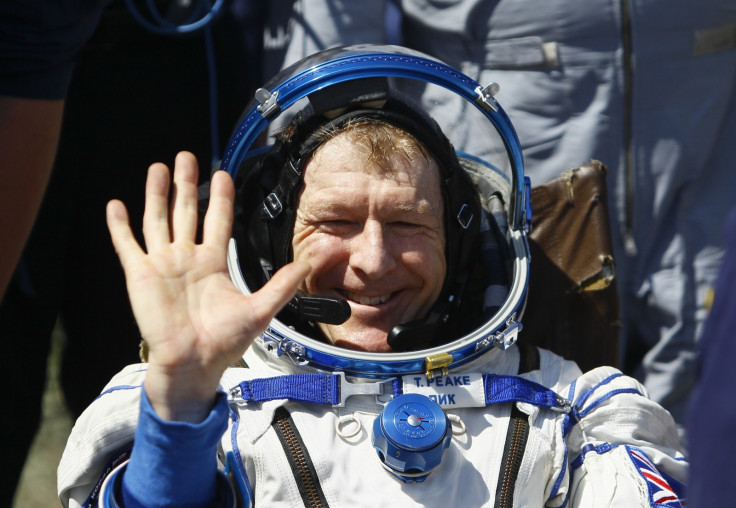Tim Peake on returning from space: 'The best ride I've ever been on!'
British astronaut Tim Peake took his first breath on earth after 186 days in space. "The smell on Earth is really strong," he told reporters, still dressed in his spacesuit. "It was incredible. The best ride I've been on ever. Truly amazing. A life-changing experience," adding that he would really miss the view.
Major Peak's terrifying descent in a Soyuz capsule was the most dangerous part of the mission, reaching a dramatic speed of over 17,000mph and its rapid deceleration to 514mph. "I'd like some cool rain right now; it's very hot in the suit. It's very hot in the capsule," he said in a remote location on the Khazak steppe 300 miles south-west of the major Kazakh city of Karaganda.
Nasa astronaut, Doug Wheelock, has described a Soyuz descent as being "like going over Niagara falls in a barrel, but the barrel is on fire".
The Soyuz TMA-19M spacecraft undocked from the ISS and began its descent in the early hours of the morning on Saturday (18 June), taking five hours to descend to Earth. Recovery crews arrived rapidly at the site to help the space travellers out of their capsule and take them for medical checks.
While in space, the crew, which included American Colonel Tim Kopra, and Russian cosmonaut Yuri Malenchenko , conducted more than 250 experiments, including numerous studies on their own body's responses to the space environment involving his brain, lungs, stomach, muscles, bones, skin, immune system and body clock. The tests will continue as he begins a lengthy process of rehabilitation on Earth.
While weakened muscles recover quickly after a long spell in space, it can take up to three years for bones to return to normal. Despite their strict exercise regime, astronauts on average lose up to 1.5 per cent of their bone mass for each month spent in space.
The father of two ran the London Marathon on a treadmill, and inspired more than a million schoolchildren. He captivated the world with his constant updates from space, sharing with the world his experiences during his trip, including one the Soyuz, which he captioned 'my ride home.'
Major Peake will now have to undergo 21 days of physical reconditioning as his body adapts to working harder than it did in space, where astronauts experience weightlessness.
Another side-effect of returning to earth from space is losing the ability to speak normally. In space, the lips and tongue also adjust to the weightlessness, so when astronauts return, they often struggle to speak. Other side-effects are vertigo and dizziness as the brain tries to re-learn what's up from what's down.
Peake's parents, Nigel and Angela, await in Germany to be reunited with their son in Cologne with a welcoming party of around 50 friends, relatives and colleagues. His father Nigel said it was 'a job well done.' "I'm so proud of him and what he has achieved, and very grateful he had the opportunity," he told Sky News.
The primary purpose of the mission was to contribute to scientific knowledge by conducting experiments in zero gravity, but Major Peake did much more than that as he constantly kept in touch with the world by Twitter, took part in video-linked Q&A sessions, and engaged in educational activities that reached more than a million schoolchildren.

© Copyright IBTimes 2024. All rights reserved.





